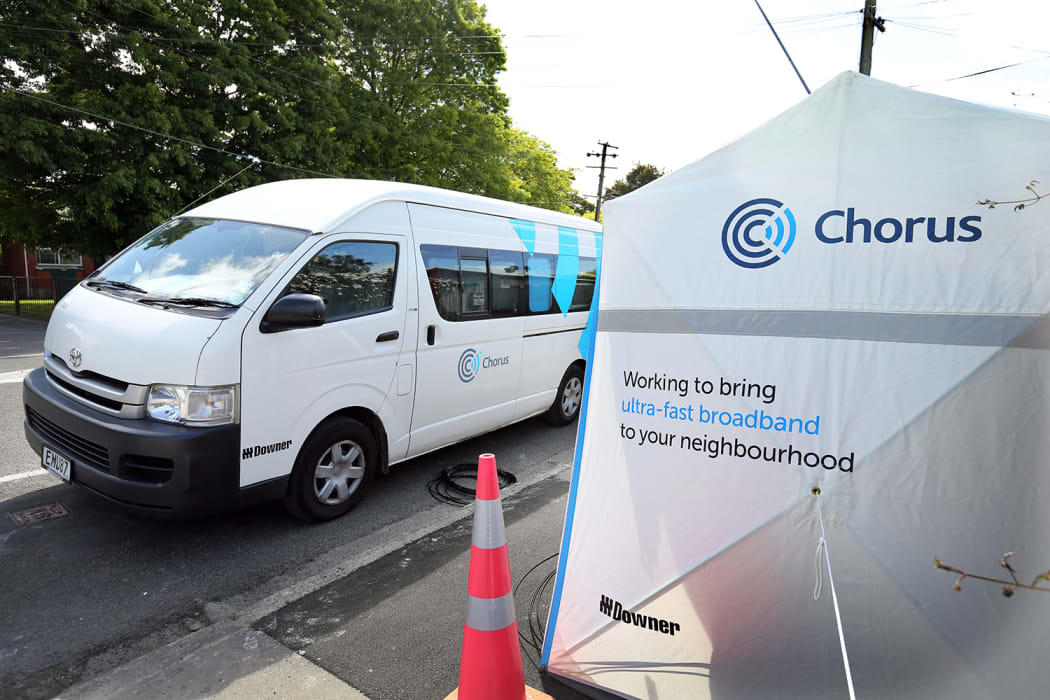Telecommunications lines company Chorus has taken a swipe at the Commerce Commission's decision on how to calculate future pricing of the ultrafast-fibre broadband network (UFB).

Photo: RNZ
The Commission has finalised the method to be used to value the losses incurred by Chorus and the other UFB builders and how these should be applied for the prices the companies can charge from 2022.
Chorus said the Commission had applied hindsight in its calculations, which would mean its shareholders would not be properly compensated for the risks they took.
"They signal that real commercial risk may be assumed away with hindsight," Chorus said.
"Overall the Commission's decisions simply do not reflect commercial reality and the true level of cost or risk that was faced in building the UFB network."
A spokesperson said Chorus was still digesting the 300-page decisions but it appeared the Commission had acted against the spirit of the agreement it had made with the government in 2011, when the company agreed to build the fibre network.
The National government of the day backed the building of the UFB through a mix of interest-free loans and taking shareholdings, but the companies involved carried losses ahead of earnings from connections to households.
Telecommunications Commissioner Tristan Gilbertson said the Commission had changed its initial view after submissions from industry.
"Submitters, including fibre companies and financial analysts, recognised this would help make the calculations easier to understand and therefore provide greater transparency when we set Chorus' price-quality path and the broader information disclosure regulations next year."
Chorus said investors did not know interest rates would be low and the fibre uptake would be high when they invested in 2011 - something the Commission had factored into its calculation.
"The final views today, and range of changed views from the Commission during this process, send extremely poor signals to investors in New Zealand's infrastructure and future public private partnerships," Chorus said.




